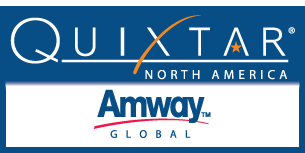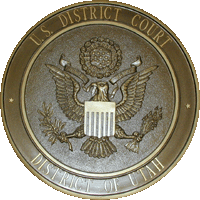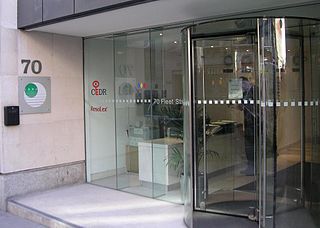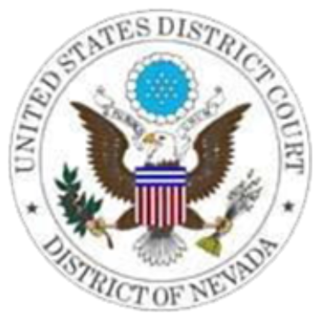Arbitration, in the context of the law of the United States, is a form of alternative dispute resolution. Specifically, arbitration is an alternative to litigation through which the parties to a dispute agree to submit their respective positions to a neutral third party for resolution. In practice arbitration is generally used as a substitute for litigation, particularly when the judicial process is perceived as too slow, expensive or biased. In some contexts, an arbitrator may be described as an umpire.

Amway North America is an American worldwide multi-level marketing (MLM) company, founded 1959 in Ada, Michigan, United States. It is privately owned by the families of Richard DeVos and Jay Van Andel through Alticor which is the holding company for businesses including Amway, Amway Global, Fulton Innovation, Amway Hotel Corporation, Hatteras Yachts, and manufacturing and logistics company Access Business Group. After the launch of Amway Global, it replaced the Amway business in the United States, Canada and the Caribbean, with the Amway business continuing to operate in other countries around the world. On May 1, 2009, Quixtar made the name change to Amway Global and fused the various different entities of the parent company.

SCO v. Novell was a United States lawsuit in which The SCO Group (SCO), a Linux and Unix vendor, claimed ownership of the source code for the Unix operating system, which they had separately alleged were infringed by the Linux operating system. SCO sought to have the court declare that SCO owned the rights to the Unix code, including the copyrights, and that Novell had committed slander of title by claiming those rights for itself.

Unconscionability is a doctrine in contract law that describes terms that are so extremely unjust, or overwhelmingly one-sided in favor of the party who has the superior bargaining power, that they are contrary to good conscience. Typically, an unconscionable contract is held to be unenforceable because no reasonable or informed person would otherwise agree to it. The perpetrator of the conduct is not allowed to benefit, because the consideration offered is lacking, or is so obviously inadequate, that to enforce the contract would be unfair to the party seeking to escape the contract.

The United States Arbitration Act, more commonly referred to as the Federal Arbitration Act or FAA, is an act of Congress that provides for judicial facilitation of private dispute resolution through arbitration. It applies in both state courts and federal courts, as was held in Southland Corp. v. Keating. It applies in all contracts, except contracts of seamen, railroad employees, or any other class of workers involved in foreign or interstate commerce, and it is predicated on an exercise of the Commerce Clause powers granted to Congress in the U.S. Constitution.

Specht v. Netscape, 306 F.3d 17, is a case in the United States Court of Appeals for the Second Circuit regarding the enforceability of browse-wrap software licenses. The court held that merely clicking on a download button does not show assent to license terms if those terms were not conspicuous and if it was not explicit to the consumer that clicking meant agreeing to the license.

Arbitration, a form of alternative dispute resolution (ADR), is a way to resolve disputes outside the judiciary courts. The dispute will be decided by one or more persons, which renders the 'arbitration award'. An arbitration decision or award is legally binding on both sides and enforceable in the courts, unless all parties stipulate that the arbitration process and decision are non-binding.
Buckeye Check Cashing, Inc. v. Cardegna, 546 U.S. 440 (2006), is a United States Supreme Court case concerning contract law and arbitration. The case arose from a class action filed in Florida against a payday lender alleging the loan agreements the plaintiffs had signed were unenforceable because they essentially charged a higher interest rate than that permitted under Florida law.
Prima Paint Corp. v. Flood & Conklin Mfg. Co., 388 U.S. 395 (1967), is a United States Supreme Court decision that established what has become known as the "separability principle" in contracts with arbitration clauses. Following an appellate court ruling a decade earlier, it reads the 1925 Federal Arbitration Act (FAA) to require that any challenges to the enforceability of such a contract first be heard by an arbitrator, not a court, unless the claim is that the clause itself is unenforceable.
AT&T Mobility LLC v. Concepcion, 563 U.S. 333 (2011), is a legal dispute that was decided by the United States Supreme Court. On April 27, 2011, the Court ruled, by a 5–4 margin, that the Federal Arbitration Act of 1925 preempts state laws that prohibit contracts from disallowing class-wide arbitration, such as the law previously upheld by the California Supreme Court in the case of Discover Bank v. Superior Court. As a result, businesses that include arbitration agreements with class action waivers can require consumers to bring claims only in individual arbitrations, rather than in court as part of a class action. The decision was described by Jean Sternlight as a "tsunami that is wiping out existing and potential consumer and employment class actions" and by law professor Myriam Gilles as "the real game-changer for class action litigation". By April 2012, Concepcion was cited in at least 76 decisions sending putative class actions to individual arbitration. After the decision, several major businesses introduced or changed arbitration terms in their consumer contracts, although the hypothesis of massive adoption of consumer arbitration clauses following the decision has been disputed.
Arbitration in the United States is governed by the Federal Arbitration Act of 1925, which requires courts to compel parties who agree to arbitration to participate in binding arbitration, the decision from which is binding upon the parties. Since the passage of the FAA, both state and federal courts have examined arbitration clauses, as well as other statutes involving arbitration clauses, for validity and enforceability.

Harris v. Blockbuster, Inc., 622 F. Supp. 2d 396, established precedent in the district that when a contract has a clause that authorizes one party to make changes to the "contract" without notification, that it is illusory and hence the entire "contract" is void.
Shearson/American Express Inc. v. McMahon, 482 U.S. 220 (1987), is a United States Supreme Court decision concerning arbitration of private securities fraud claims arising under the Securities Exchange Act of 1934. By a 5–4 margin the Court held that its holding in a 1953 case, Wilko v. Swan, that the nonwaiver provisions of the Securities Act of 1933 prevented the mandatory arbitration of such claims, did not apply to claims under the 1934 Act due to differences in the corresponding language of the two statutes, reversing a decision of the Second Circuit Court of Appeals that had affirmed what had been considered settled law, despite the lack of a precedent. It likewise held that claims under the Racketeer Influenced and Corrupt Organizations Act (RICO) were arbitrable, affirming an order from the district court that the Second Circuit had also upheld.
14 Penn Plaza LLC v. Pyett, 556 U.S. 247 (2009), is a United States labor law case decided by the United States Supreme Court on the rights of unionized workers to sue their employer for age discrimination. In this 2009 decision, the Court decided that whenever a union contract "clearly and unmistakably" requires that all age discrimination claims under the Age Discrimination in Employment Act of 1967 be decided through arbitration, then employees subject to that contract cannot have those claims heard in court.
Mitsubishi Motors Corp. v. Soler Chrysler-Plymouth, Inc., 473 U.S. 614 (1985), is a United States Supreme Court decision concerning arbitration of antitrust claims. The Court heard the case on appeal from the United States Court of Appeals for the First Circuit, which had ruled that the arbitration clause in a Puerto Rican car dealer's franchise agreement was broad enough to reach its antitrust claim. By a 5–3 margin it upheld the lower court, requiring that the dealer arbitrate its claim before a panel in Tokyo, as stipulated in the contract.
Wilko v. Swan, 346 U.S. 427 (1953), is a United States Supreme Court decision on the arbitration of securities fraud claims. It had originally been brought by an investor who claimed his broker at Hayden Stone had sold stock to him without disclosing that he and the firm were the primary sellers. By a 7–2 margin the Court held that the provisions of the Securities Act of 1933 barring any waiver of rights under that statute took precedence over the Federal Arbitration Act's (FAA) requirement that arbitration clauses in contracts be given full effect by federal courts. It reversed a decision to the contrary by a divided panel of the Second Circuit Court of Appeals.
Disputes between consumers and businesses that are arbitrated are resolved by an independent neutral arbitrator rather than in court. Although parties can agree to arbitrate a particular dispute after it arises or may agree that the award is non-binding, most consumer arbitrations occur pursuant to a pre-dispute arbitration clause where the arbitrator's award is binding.

In re Zappos.com, Inc., Customer Data Security Breach Litigation, 893 F. Supp. 2d 1058, was a United States District Court for the District of Nevada case in which the Court held that Zappos.com's customers were not held to the browsewrap terms of use because of their obscure nature. The courts also held that the agreement was unenforceable because Zappos had reserved the right to change it at any time without informing the customers. This court decision set a precedent for businesses that use browsewrap agreements and/or include a clause in their agreements that allow them to change the agreements at any time. The decision encouraged conversation on how a business should most fairly display its terms of use and how to avoid unfairness and ambiguity when writing them.
Am. Express Co. v. Italian Colors Rest., 570 U.S. 228 (2013), is a United States Supreme Court case decided in 2013.

Uber Technologies Inc v Heller, 2020 SCC 16, is a 2020 decision of the Supreme Court of Canada. The Court held 8–1 that an arbitration clause in a contract the plaintiff David Heller had signed with Uber was unconscionable, and hence unenforceable. As a result, it held that Heller's proposed class action lawsuit against Uber could go forward.









